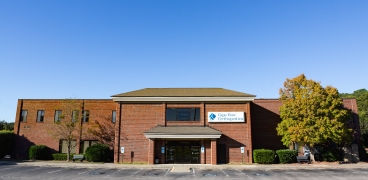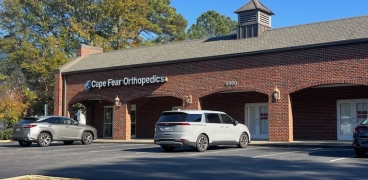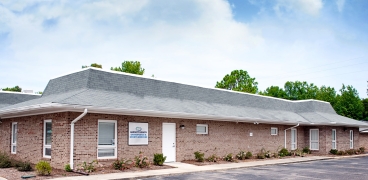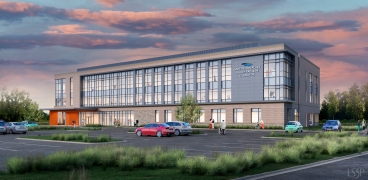Spine orthopedics is a specialized field of medicine that focuses on the diagnosis, treatment, and rehabilitation of conditions and injuries affecting the spine, including the vertebrae, discs, and surrounding tissues. At Cape Fear Valley Health, our team of skilled spine orthopedic specialists are dedicated to providing comprehensive and personalized care to patients, utilizing the latest advancements in medical technology and surgical techniques to ensure the best possible outcomes.
Types of Orthopedic Spine Treatments
Non-Surgical Treatments
Non-surgical treatments for spine conditions may be recommended as the first line of defense, particularly for milder or chronic cases. These can include physical therapy, medication management, spinal injections, and lifestyle modifications. Physical therapy can help strengthen and stabilize the spine, improve flexibility, and reduce pain. Medication management may involve anti-inflammatory drugs, pain relievers, or muscle relaxants to alleviate symptoms. Spinal injections, such as epidural injections, can deliver targeted relief to specific areas of the spine.
Surgical Treatments
In cases where non-surgical treatments are not effective or the condition is more severe, surgical interventions may be necessary. Some common surgical treatments for spine conditions include spinal decompression, spinal fusion, and artificial disc replacement. Spinal decompression procedures, such as laminectomy or discectomy, aim to relieve pressure on the spinal nerves by removing or trimming bone or disc material. Spinal fusion involves fusing two or more vertebrae together to provide stability and reduce pain. Artificial disc replacement is a newer surgical option that can preserve motion and function in the spine by replacing a damaged disc with an artificial one.
Am I a Candidate for Artificial Disc Replacement?
Artificial disc replacement may be a suitable option for patients with certain spine conditions, such as degenerative disc disease or herniated discs. Some key factors that may indicate candidacy for artificial disc replacement include:
Age
Patients are typically younger, often between 20-60 years old, as artificial discs are designed to have a longer lifespan than traditional spinal fusion.
General Health
Patients should be in generally good health, with no significant medical conditions that could impact the surgery or recovery.
Spinal Condition
The condition should be limited to a single disc level and not involve significant spinal instability or deformity.
Failed Conservative Treatments
Patients should have tried and failed conservative treatments, such as physical therapy, medications, and injections, before considering surgical options.
Our Approach to Spine Treatment
At Cape Fear Valley Health, our comprehensive approach to spine treatment is focused on providing personalized, evidence-based care to each patient. Our team of spine orthopedic specialists, including surgeons, physiatrists, and physical therapists, work collaboratively to develop an individualized treatment plan that addresses the specific needs and goals of each patient.
Our approach includes:
- Thorough Evaluation: Our team conducts a comprehensive evaluation, including a detailed medical history, physical examination, and advanced imaging studies, to accurately diagnose the underlying condition.
- Tailored Treatment Recommendations: Based on the diagnosis and the patient's unique circumstances, we develop a customized treatment plan that may involve non-surgical or surgical interventions.
- Multidisciplinary Care: Our patients have access to a wide range of specialists, including physical therapists, pain management experts, and rehabilitation specialists, to ensure a holistic approach to their care.
- Shared Decision-Making: We believe in a collaborative approach to treatment, where the patient is an active participant in the decision-making process.
- Continuous Improvement: We constantly strive to stay at the forefront of spine care, incorporating the latest advancements in medical technology and surgical techniques to deliver the best possible outcomes for our patients.
What to Expect with artificial disc replacement?
Spine replacement, also known as artificial disc replacement, is a surgical procedure that involves the removal of a damaged or degenerative disc and the insertion of an artificial disc implant. This procedure is designed to preserve motion and function in the spine, while also relieving pain and improving overall spine health.
During the procedure, our skilled spine surgeons will:
- Expose the Damaged Disc: The surgeon will make a small incision to access the damaged disc, taking care to minimize disruption to surrounding tissues.
- Remove the Damaged Disc: The damaged or degenerative disc will be carefully removed, making room for the artificial disc implant.
- Insert the Artificial Disc: The artificial disc, which is designed to mimic the natural function of the original disc, will be carefully positioned and secured in place.
- Close the Incision: The incision will be closed using sutures or staples, and the patient will be monitored closely during the recovery process.
“I’m completely pain free,” Robert said with a chuckle. “The only medication I take these days is a vitamin.”









